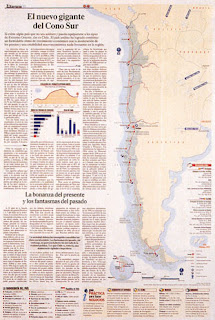This long journey of blogging has finally come to THE END! As a reflection, all blog that I have been written is full of my passion; even it might looks like amateur.
I understand that writing a blog is very different compare to essay writing. We must keep our each post short, simple, and interesting with adding appropriate words and relevant graphics to attract the readers, and persuade them to keep reading. Walsh(2006) stated that the suitable graphic could guide readers to get easy understand.
Throughout the whole process of blogging assignment for IPD, I have learned much knowledge about multi-modal text, and those issue about publication and design that unnoticed in our daily life.
As a bloggers also I have to be responsibility on what I have posted on my blog. I hope you, as a reader will gain some useful information from this blog. Thanks for reading my blog J
References:
Walsh, M 2006, 'The textual shift: examining the reading process with print, visual, and multimodal texts', Australian Journal of Language and Literacy, Vol.29, No.1, pp.24-37.





























